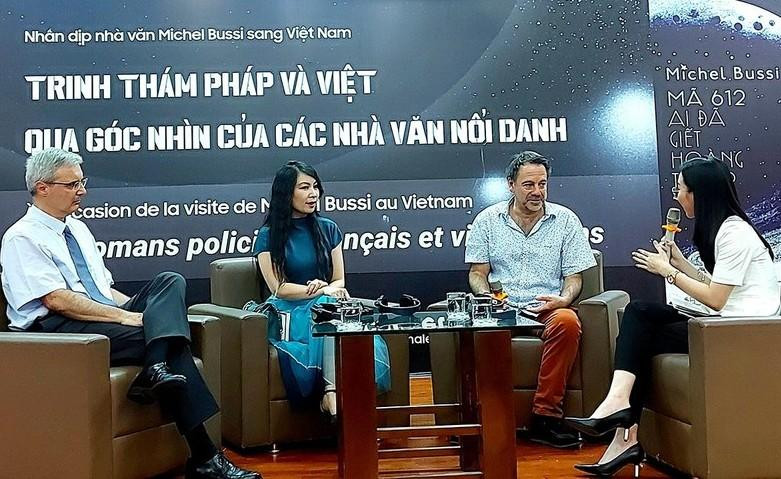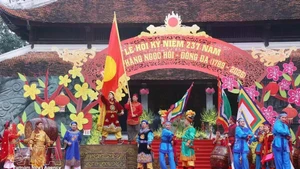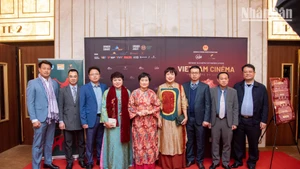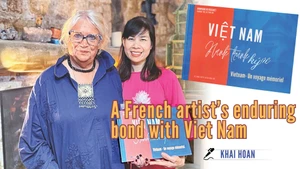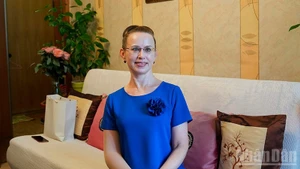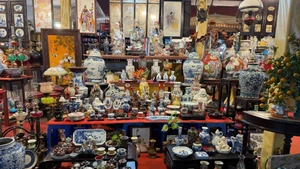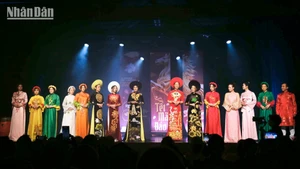The event was organised on the occasion of French writer Michel Bussi’s visit to Vietnam to participate in a series of activities to promote detective literature.
Michel Bussi is an established detective author in French contemporary literature thanks to his transformative writing style. He has won more than 15 literary awards, and his works have been translated and published in over 35 countries, some of which have been adapted into films.
Many of his works have been translated and published in Vietnam, such as ‘Xin Dung Buong Tay’ (Don't let go), ‘Hoa Sung Den’ (Black water lilies), ‘Me Da Sai Roi’ (Mother is wrong).
The seminar also witnessed the launch the Vietnamese version of his latest book entitled 'Ma 612: Ai Da Giet Hoang Tu Be?’ (Code 612: Who killed the Little Prince?).
At the event, Bussi joined French Ambassador to Vietnam Nicolas Warnery, and Vietnamese writer Di Li, to exchange their views on detective literature in the two countries, as well as similarities and differences, opportunities and challenges facing the genre.
According to the speakers, detective fiction authors often focus on strange, extraordinary and somewhat unbelievable situations and stories and then try to find a solution to them.
While Vietnamese detective novelists often integrate many adventure-fiction elements in their works, their French colleagues focus on intense investigation and crime-solving elements.
While many Vietnamese detective writers and publishers have to struggle to find a position for the genre, detective books are marketable and highly-appreciated amongst French readers.
Explaining the reasons for these differences, the speakers said that France and a number of other countries already have a firm foundation of detective literature, and this genre is also widely imbued in and supported by other genres of the arts, such as cinema, theatre, and painting.
Despite the differences, Vietnamese and French detective literature share a common similarity that images of women and motherhood are often intertwined in the journey of discovering the truth and are considered as an expression of sacred beauty.
In such storylines, the female protagonist is developed with strong, assertive, and benevolent characteristics and plays a pivotal role in the story. This not only helps the work become more attractive to readers but is also a good way for writers to introduce the cultural features and people of their country.
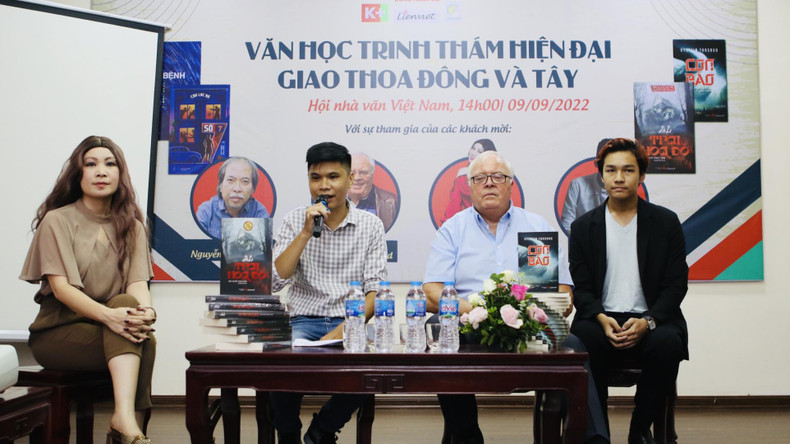 |
| Delegates at the seminar on modern detective literature in Eastern and Western countrie (Photo: congluan.vn) |
Previously in late September, the Vietnam Writers' Association hosted a seminar on modern detective literature in Eastern and Western countries. The event attracted the participation of Chairman of Vietnam Writers’ Association Nguyen Quang Thieu, Norwegian writer Oystein Torsrud, and Vietnamese writer Di Li.
Participants at the event discussed reasons why detective literature in Vietnam is still less popular among readers; the difference between Eastern and Western detective literatures, between modern and traditional detective literary genre; and Vietnamese detective authors’ capacity.
According to young writer Duc Anh, author of two novels ‘Dao Bao Benh’ (The sick island) and ‘Thien Than Mu Suong’ (The Mist Angel), domestic detective literature is rising like an “underground stream” in the flow of Vietnamese literature.
Domestic detective literature is rising like an “underground stream” in the flow of Vietnamese literature.
Writer Duc Anh
This can be seen through the fact that detective writing techniques are being featured more often in literary works, including in children's stories.
In addition, in recent years, an increasing number of foreign detective literary works, most of them in French, have been translated and published in Vietnam. More and more foreign detective authors have visited Vietnam to promote the genre among Vietnamese readers and seek inspiration for their works.
This is considered a favourable condition for the further development of Vietnamese detective literature.
Readers will be provided with more opportunities to approach the genre when the market is filled with more works from foreign authors, particularly novels which are inspired from the country and people of Vietnam.
Another encouraging signal for this literary genre in Vietnam is that many detective works by young Vietnamese authors such as Thao Trang, Kim Tam Long, Duc Anh, and Nguyen Duong Quynh, have won a number of literary awards and received attention from detective fans.
Most recently, writer Di Li’s book ‘Trai Hoa Do’ (The Red Flower Camp) was adapted into a movie by director Victor Vu. It has been made into an eight-part series and screened on K+, a paid TV channel, and received stable ratings of 17-24%.
This has contributed to paving the way for other detective books to receive investment from movie makers and other units in order to become more popular among the public.
